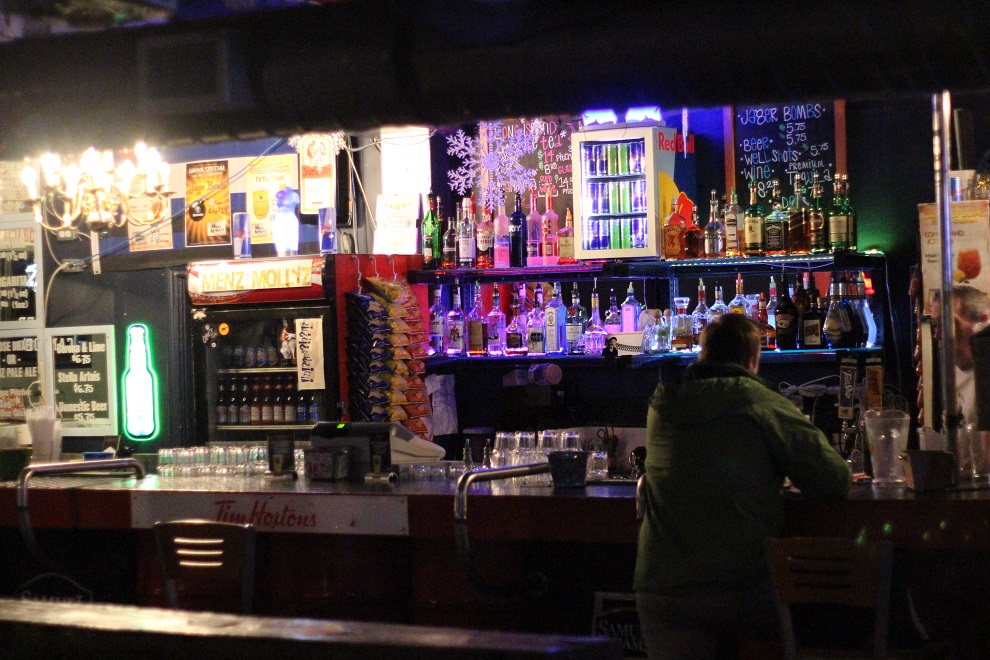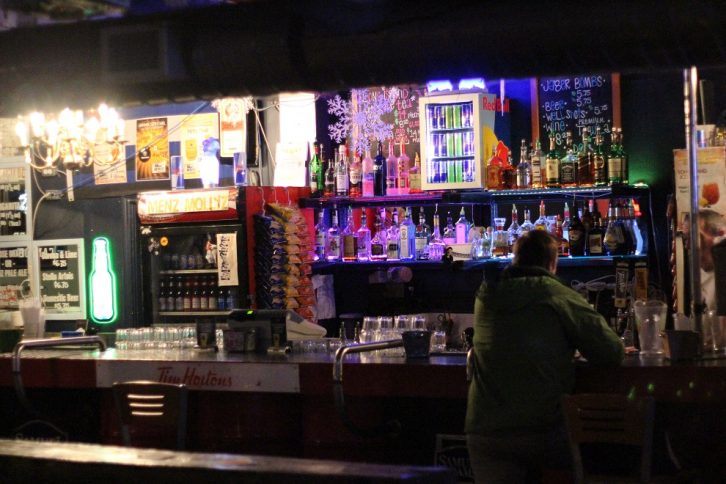City Life
The little bar that could
Menz & Mollyz celebrates 12 years

caption
Menz & Mollyz is located at 2182 Gottingen St.
caption
Menz & Mollyz is located at 2182 Gottingen St.Menz & Mollyz is celebrating its 12th anniversary this week. The bar has developed into a hub for the LGBTQ community in Halifax, acting as a meeting place and escape from the outside world.
It was founded in 2005 in the upstairs of a Gottingen Street building and, at the time, was just called “Menz.”
Co-founder and owner Dave Landry says it was originally conceived to be a space for blue-collar, masculine gay men. Related stories
“I just found that my experience was that you couldn’t go somewhere that was safe, comfortable and funky and do what you want,” he says. “There was a lot of rules.”
Menz & Mollyz has undergone many changes since then. As a space for drag and gender performance in Halifax, the bar has shed its once rough image.
To Landry, the bar is here for its community, and will be anything they make it. For him, it’s all about giving people the freedom to express themselves. The business side is secondary.
“For me, even just that it works, that people get excited about it, that people like it, that people keep coming back — just adds to that sense of satisfaction,” he says. “I try to keep things pretty low-maintenance.”
As he begins to reflecting on his community and the loss it has experienced over the years, Landry cries, unable to speak.
The bar has had its challenges. A fire in 2008 halted the fledgling business, which burned to the building it was housed in to the ground. Downstairs was a cafe called Mollyz, the name of which lives on in its current incarnation. Menz & Molly’s was relocated down the road in the Hali-famous three stage venue above Plan B, reopening six months after the fire.
Reopened as Menz & Mollyz, the bar has grown into the multi-stage venue and performance space Haligonians know now. Landry schedules several interviews per night and estimates there has been over 5,000 events in the bar since its move.
Charlie Rizzo, who uses the pronoun they, has a monthly act at the bar. They perform as a drag king under the name “Rhett Slutler,” in the Halifax Drag Kings group, which has performed across the country.
Rizzo says the bar has changed them for the better.
“When I walked into Menz bar for the first time … outwardly I was expressing as a female or a woman and also as a lesbian as opposed to a queer person,” they say. “It’s really opened my eyes to a lot of different things.”
For Rizzo, it’s the sense of community which makes the bar special.
“As cheesy as it sounds, it’s changed my life,” they say. “(Bar patrons) asked a lot of questions and wanted to know how I actually feel about a lot of things. They wanted to know how I feel about my body and how I feel about the people I date.”
With the goal to “smash the binary” each month, Rizzo also founded the Genderfuck series of performance nights at Menz & Mollyz. Its focus is on providing a space for performers who might not have another venue.
“We had a pageant in November and it was a lot of people who thought they could never do a pageant because they thought, ‘well I’m not a queen, or not a king and I don’t have the money to buy this ballgown, but I have this lent I want to share,'” they say.
The winner of that first pageant was Anna Thematic, who was crowned the inaugural Genderfuck Supreme. Thematic is a non-binary singer who found their niche at the bar.
“Under the veil of performance — in the controlled environment of performance — I could explore aspects of my gender; I could get in touch with those things that I was never allowed to be,” Thematic says. “Seeing that new person in the mirror gave me confidence to go out on a limb, both as a performance artist and in everyday life: to be vocal about my gender, be visible and advocate for people.”
Thematic is an organizer for RadPride. Since starting to perform, they recently came out to their parents.
Thematic’s story isn’t unique. Rizzo says that the bar helps a lot of people figure out who they are.
“There’s a lot of people there who are questioning their gender or their sexuality (and) where they fit in, especially when it comes to intersectional politics,” they say. “It just creates this atmosphere of constant questioning, (but) not in a bad way. It’s been really fabulous, people who are in the same spot as you and how you identify.”
And Landry’s hope for the next 12 years? That his community will continue to make the bar whatever kind of home they want.
“It’s like I’ve always said, the more the merrier.”

